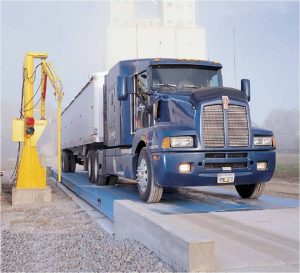
Understanding International Organization for Standardization (ISO)
ISO/IEC 17025 accreditation is based on a standard published jointly by the International Organization for Standardization (ISO) and the International Electrotechnical Commission. ISO is the preeminent organization for global standards in all fields and disciplines. Similarly, the IEC is the world’s leading organization for International Standards and Conformity Assessment for all electrical, electronic, and related technologies. Each is a third-party, internationally recognized, and respected organization.
Generally, standards establish and promote the development of the universal application of customer-focused quality management principles, service, conformity, and recognized standards to facilitate international trade and commerce. Experts from each field provide input and guidance to respective committees responsible for issuing a particular ISO standard. In disciplines that complement or are compatible, joint committees of the ISO and IEC combine to form a consensus-based standard, such as ISO/IEC 17025, to establish conformity of assessment systems and quality management processes.
What is ISO 17025 Accreditation?
ISO 17025 is a general term used to refer to a specific international standard—ISO/IEC 17025:2017. Industrial-scale companies that have achieved the requirements of ISO 17025 have demonstrated technical competence in calibration. The standard covers the operation and effectiveness of a company or organization’s quality management system, fulfilling technical requirements primarily related to staff competence and expertise and equipment calibration, and quality management processes overseeing document control, corrective action, and related procedures.
The ISO 17025 standard is the basis for accreditation from an accrediting body. In North America, that body is ANAB, the ANSI National Accreditation Board (ANAB). It is an independent, non-governmental organization that provides accreditation services and training to various sectors, private or public organizations, and companies that serve the global marketplace. ANAB is the largest accreditation body in North America, with representative services in more than 75 countries.
ISO/IEC 17025 is useful for any company or organization that manufactures, sells, or performs testing, sampling, or calibration. This includes any industrial, governmental, or institutional body—industrial-scale companies, universities, research centers, governments, regulators, testing and calibration companies, inspection bodies, and any other conformity assessment or customer-focused services related to testing, sampling, or calibration.
Importance of Accreditation for a Scale Calibration Company
In today’s world, as markets become increasingly more globalized and competition for goods and services becomes more complex, accreditation is an essential tool for companies and businesses of all trades and products. It is the barometer that ensures products and services have passed a stringent, independent assessment every step of the way, from design and development to manufacturing processes to delivery of products.
Accreditation ensures that a company has met a minimum of customer-focused standards in quality and service. Experts in the field or discipline internationally agree upon the criterion for such standards and then submitted to a committee for publication. Whether it is in making a product, managing a process or production, delivering services, or supplying materials and goods, achieving an ISO standard designation means that a particular company or organization has demonstrated that it has met the requirements for recognition.
How Partnering With an Accredited Company Saves Money in the Long Run
Companies doing business within or across borders must demonstrate conformity to local, national, or international standards or regulations to have a successful track record of selling their products and services. Accreditation promotes and shows confidence in quality customer services and products. The business of industrial scales and calibration truly is an exact science. In companies where the delivery or sale of goods is priced by weight, absolute consistency in weights and measurement is essential. Inconsistency can cost the buyer or seller money as well as reputation.
Partnering with an accredited company matters in terms of quality service and reliability. Products and services sold, supplied, and provided by an accredited company ensure that that company is customer-focused and customer-driven. Every aspect of an accredited business company has been certified in quality service and products, customer satisfaction, well-trained personnel, and clearly defined management roles and responsibilities.
Contact the Experts at Worcester Scale
Worcester Scale is proud to be an ISO/IEC 17025 registered calibration organization. Our demonstrated technical experience and competence will give customers the most accurate results, whether heavy-duty truck scales or high-resolution digital balances. To request a pricing quote, please fill out the form here.


Leave a Reply